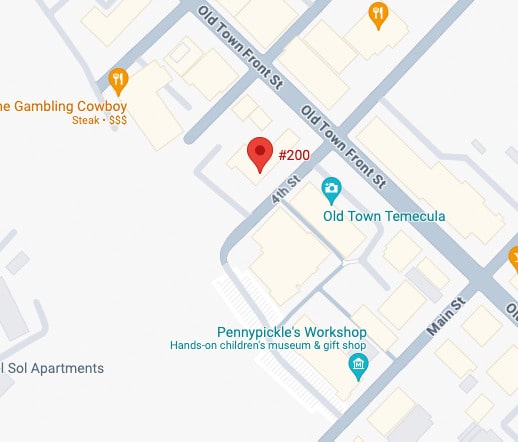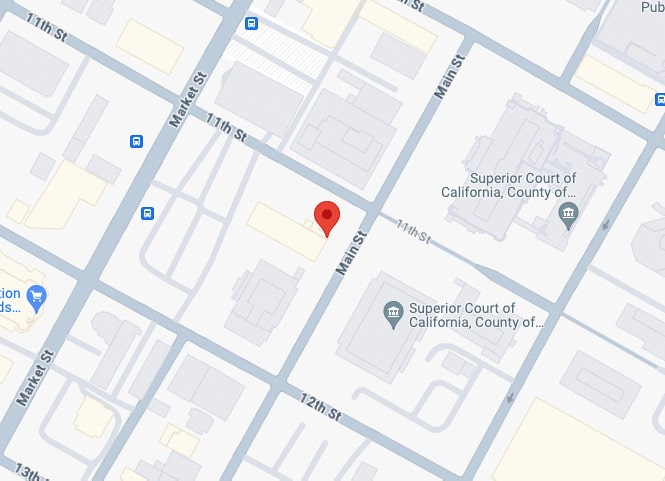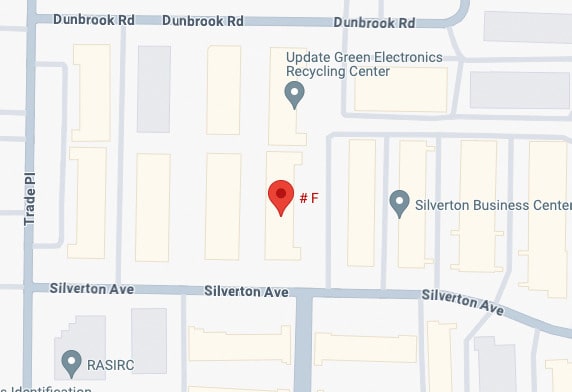Facing arrest can be distressing, particularly when financial constraints add to the challenges. If you cannot afford the full bail amount set by the court, reaching out to a bail bondsman is an option worth considering. Bail bondsmen specialize in assisting in such situations. Bail bondsmen charge a non-refundable fee, often a percentage of the total bail amount. This fee facilitates your release from custody.
Moreover, entering into an agreement with a bail bondsman comes with legal obligations. As the individual released on bail, you must attend all court hearings as required. Failure to do so could lead to consequences, including potential loss of collateral, the involvement of a bounty hunter, or your rearrest.
If you are contemplating the services of a La Jolla bail bondsman, contact Justice Bail Bonds for assistance.
What is a Bail Bond?
A bail bond is a financial arrangement established to facilitate the temporary release of a defendant from custody pending trial. This process begins with a judge stipulating a bail amount during a court hearing. The set bail guarantees the defendant's attendance at all court hearings and trial proceedings.
Several pivotal factors contribute to the determination of the bail amount, including:
- Nature and severity of the charges — The type and gravity of the alleged crime significantly influence the bail amount. More grave offenses correlate with higher bail amounts.
- Flight risk — The court evaluates the defendant's probability of attempting to flee before trial. Judges assign higher bail amounts to those perceived as having a greater flight risk.
- Criminal history — Consideration is given to the defendant's criminal history, encompassing past convictions and arrests. Your criminal history will impact the bail amount.
- Community ties — The strength of the defendant's ties to the community, including aspects like employment, family, and residence, is considered. Strong community ties contribute to a reduction in the bail amount.
- Financial resources — The court scrutinizes the defendant's capacity to meet the bail requirement. It considers factors including income, assets, and overall financial situation.
- Risk to the community — Concerns about whether the defendant's release on bail poses a risk to community safety could lead to an adjustment in the bail amount. It could also impose additional conditions.
- Previous failure to appear — A history of the defendant failing to appear for court hearings or violating bail conditions can influence the judge to set a less lenient bail amount.
Once the bail amount is established, the defendant, or their family and friends, could opt to engage the services of a La Jolla bail bondsman. In most cases, this is an option if they lack the means to pay the total amount. The bondsman typically charges a non-refundable fee, approximately 10% of the total bail, to facilitate the defendant's release from custody. This fee compensates the bondsman for his/her services. This fee should not be mistaken for the actual bail amount.
Release On Your Own Recognizes
In certain circumstances, a court could opt not to impose a bail requirement and, instead, release an individual on their own recognizance (O.R.). This implies that the person can be released from custody without having to post bail. This decision is contingent upon his/her commitment to attend all scheduled court appearances. This form of release is commonly known as being released "on personal recognizance."
Several factors contribute to the court's decision to grant an individual release on their own recognizance:
- Low flight risk — The court could determine that the defendant has a low likelihood of fleeing before trial. This is particularly the case if there are strong community ties, stable employment, and no history of prior failures to appear.
- Non-violent offense — The court could lean towards releasing the individual on their own recognizance for less severe, non-violent crimes.
- Local residency — Being a long-term San Diego resident, especially La Jolla, can favor an O.R. release.
- Community support — The court may consider support from the community, including character references.
Note: The decision to release on recognizance rests within the judge's discretion. Each case is evaluated based on its unique circumstances.
Failure to Appear
Failure to Appear (FTA) occurs when an individual released from custody with the obligation to attend court hearings fails to appear as scheduled. This breach of court-ordered conditions has several negative implications. In certain situations, this results in the intervention of a bounty hunter. The court issues a bench warrant upon failing to appear, granting law enforcement the authority to arrest the individual and bring them before the court.
FTA results in additional charges, thereby escalating legal consequences. The court could choose to revoke bail or release, leading to the re-incarceration of the individual. This decision primarily occurs, especially if a pattern of non-compliance emerges.
Those who post bail risk forfeiting the bail amount to the court. Subsequent legal proceedings could involve the court setting a higher bail if FTA becomes a recurrent issue. According to the court’s analysis, the FTA indicates an increased flight risk.
In instances of FTA, the involvement of a bounty hunter, also known as a bail enforcement agent, makes it possible to locate and apprehend the individual. Bounty hunters operate on behalf of bail bondsmen or the court to bring the fugitive back into custody. Often, bounty hunters are hired by bail bondsmen to arrest the defendant. Further, they ensure the fugitive’s appearance in court, thus averting a bail forfeiture.
If you fail to attend court after being released on your own recognizance (OR), the court can revoke your own recognizance release. It could opt for bail or alternative conditions. This decision could lead to consequences concerning the initial release conditions granted. For example, if specific terms or promises accompany your release, the court could reconsider those terms.
Your failure to appear affects the current situation and carries potential ramifications for future legal proceedings. Courts could perceive repeated failures to appear unfavorably, influencing their decisions. Moreover, ongoing non-compliance with court orders can elevate legal consequences, possibly resulting in more severe penalties, including imprisonment.
Bail Forfeiture
Bail forfeiture involves losing the bail money posted to secure an individual's release from custody. When granted bail, an individual or their representative pays a specific amount to the court as security. This ensures their presence at scheduled court hearings and compliance with court-set conditions.
Failure to appear triggers the bail forfeiture process, resulting in the loss of the posted bail amount. The court retains these funds as a penalty for non-compliance with the release conditions. The courts assert a lien on any property or sum posted on the defendant's behalf.
Bail bondsmen, committed to ensuring the defendant's court appearance, minimize financial losses by enlisting bounty hunters to pursue the defendant. As an additional safeguard, most La Jolla bail bond companies require collateral when posting bail. This collateral serves as a guarantee, and if the defendant fails to comply, leading to bail forfeiture, the bail bondsman seizes it to cover financial losses.
Who is Co-signer, and Why are They Required in La Jolla Bail Bond Contracts?
A co-signer in contracts with companies offering La Jolla bail bonds assumes financial responsibility for the defendant. He/she ensures compliance with court-set conditions. Bail bondsmen mandate this crucial role for various reasons.
Primarily, co-signers are required to post collateral on behalf of the defendant when entering a bail bond contract. They provide an extra safeguard for the bail bondsman if the defendant fails to appear in court. The types of collateral vary, but they include:
- Real estate — Homes or land.
- Financial assets — For example, bank accounts or stocks.
- Valuables — These include jewelry or art) and.
- Vehicles.
The necessity for co-signers extends beyond collateral. It also includes the following reasons:
- Bail bondsmen rely on co-signers to mitigate the financial risk associated with bail. The co-signer is accountable if the defendant does not fulfill their obligations.
- The primary purpose of bail is to secure the defendant's release with the understanding that they will attend all scheduled court hearings. The co-signer ensures this commitment.
- In case of non-appearance, co-signers will assist in locating the defendant. This highlights their role in ensuring compliance.
- Co-signers undergo financial assessments to assure bail bondsmen of their ability to cover the bail amount.
- Co-signers enter into legally binding agreements. The contracts delineate responsibilities and potential consequences if the defendant does not comply.
- Co-signers act as communication channels between the bail bondsman and the defendant. They ensure crucial information reaches the defendant.
- Co-signers, often close to the defendant, contribute to community ties. This connection could influence the bail bondsman's decision to approve the bail bond.
What Happens to Bail After the Trial?
Following the trial, the fate of your bail hinges on the trial's outcome and subsequent developments. If an acquittal is secured (the jury returns a no-guilty verdict), the courts will return the bail amount to you. Expect a period for the return process as administrative protocols are adhered to.
Conversely, in the event of a conviction and a verdict of guilt, the bail amount assumes a different trajectory. It is commonly allocated toward fines, court costs, and any restitution you owe. After these financial obligations are met, any residual funds can be anticipated for return, albeit with deductions for applicable fees.
Should your sentence involve a period of incarceration, the bail amount will likely be used to offset the associated costs of your custodial time. Any remaining funds are slated for return to you upon covering these expenses, subject to the deduction of fees.
Opting for an appeal triggers the continuation of bail conditions until the appellate process concludes. A successful appeal would result in the restitution of the bail amount. Conversely, an unsuccessful appeal would subject the process to the procedures above.
Failure to appear for court hearings bears significant consequences. In these instances, the court could forfeit the sum as discussed above. This decision precludes any prospects for its return.
Note: Reach out to your bail bondsman and inquire about the feasibility of using a portion of the La Jolla bail bonds to address fines, costs, or restitution owed. This proactive engagement allows for a straightforward discussion on whether these arrangements are possible. Additionally, it will help you know how they could assist in meeting your financial obligations related to the legal proceedings.
What Happens to Those Who Cannot Afford Bail?
Recent bail reforms were enacted to prevent individuals from being held in custody solely due to an inability to pay bail. In 2018, California introduced Senate Bill 10 (SB 10) to replace the cash bail system with a risk assessment process for pretrial release. However, SB 10 faced challenges and was subsequently put on hold, leading to the initiation of Humphrey hearings in the courts.
A Humphrey hearing is a court proceeding addressing pretrial release conditions, particularly when the prosecution seeks to detain a defendant without bail. The term is derived from the 2018 California Supreme Court case, In re Humphrey. The case significantly influenced the state's bail system.
The Humphrey case established that pretrial detention cannot be based solely on a defendant's inability to pay bail. The court stressed considering a defendant's financial capacity and exploring alternatives to monetary bail. This decision underscored the court's responsibility to assess individual circumstances and consider less restrictive options for pretrial detention.
In light of the "Humphrey" decision, the courts will conduct Humphrey hearings if the prosecution argues for a defendant's detention without bail. During these hearings, the court evaluates factors such as:
- The defendant's financial situation.
- The charges' nature, and.
- Potential risks to public safety.
The aim is to determine suitable pretrial release conditions that balance the defendant's rights with public safety concerns.
Why You Should Consider Using La Jolla Bail Bonds
La Jolla bail bonds are a go-to option for many because of several reasons, namely:
-
Financial Relief
Using bail bonds provides a distinct advantage in terms of financial relief. Rather than confronting the immediate financial strain of paying the entire bail amount, opting for a bail bond involves a significantly smaller fraction of the total. This alleviates the immediate financial burden and allows individuals to manage their resources more effectively.
Individuals can secure a defendant's release without depleting their financial reserves. They do this by paying a reduced percentage, a practical and financially sustainable approach to addressing legal challenges.
-
Bail Bondsmen are Available 24/7
The 24/7 availability of bail bond services is a distinctive feature that significantly enhances their practicality. This constant accessibility ensures that individuals can access assistance anytime, day or night when confronted with legal matters.
The round-the-clock availability of bail bond services caters to the unpredictable nature of legal issues. It provides a reliable and immediate resource whenever the need arises. This continuous support underscores the convenience and responsiveness individuals can rely on when navigating the intricacies of the legal system.
-
Speedy Release
Opting for La Jolla bail bonds ensures your speedy release. Bail bondsmen expedite the process of securing your release from custody. Unlike the potential delays associated with paying the full bail amount, a bail bond streamlines the release, ensuring a prompt resolution. This swift turnaround minimizes your time in custody and facilitates a rapid return to your daily life.
-
Asset Preservation
Individuals must pay only a fraction of the bail amount by opting for a bail bond. This allows them to retain a significant portion of their financial resources. This prudent financial approach ensures flexibility in addressing other potential legal expenses, including attorney fees, court costs, and related financial obligations.
-
Flexibility in Payment
Bail bondsmen offer payment plans. These payment options allow individuals to meet their financial commitments in a manageable and adaptable manner. This accommodating approach reduces the financial strain you would experience when meeting all your obligations, including court fees.
La Jolla Jail and Courthouse Information
La Jolla Jail
La Jolla Police Department
La Jolla Courthouse
Superior Court of California - County of San Diego
Central Courthouse
Find a Reliable Bail Bondsman Near Me
Arrests occur randomly. Using your funds to secure release from custody can unpredictably impact your financial situation. This underscores the crucial role of a bail bondsman in facilitating your release. Enlisting the services of a bail bondsman proves invaluable in navigating the uncertainties of arrests. They provide a smoother and less financially burdensome process for securing your release. This strategic choice effectively mitigates the potential disruptions to your financial stability caused by sudden arrests.
If you or a loved one is arrested in La Jolla, explore the beneficial assistance of a bail bondsman to streamline the release process efficiently. The team at Justice Bail Bonds will work to ensure your fast release at a fraction of the cost you would have otherwise incurred. When you enlist our services, you are assured of the expertise of a trusted bail bondsman, guaranteeing a smoother and more financially manageable experience.
Your peace of mind and prompt resolution are within reach. Do not hesitate to contact us at 714-541-1155 for more information.









